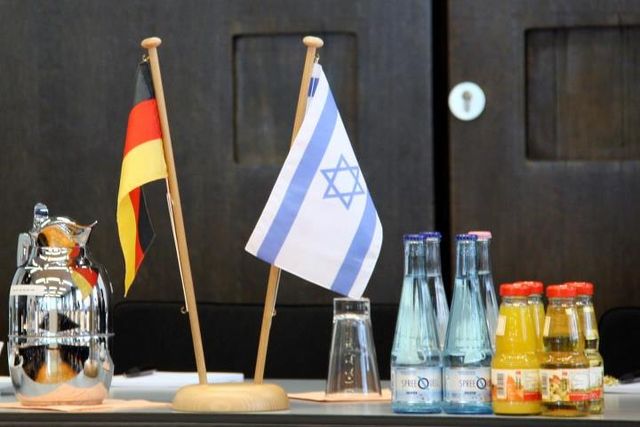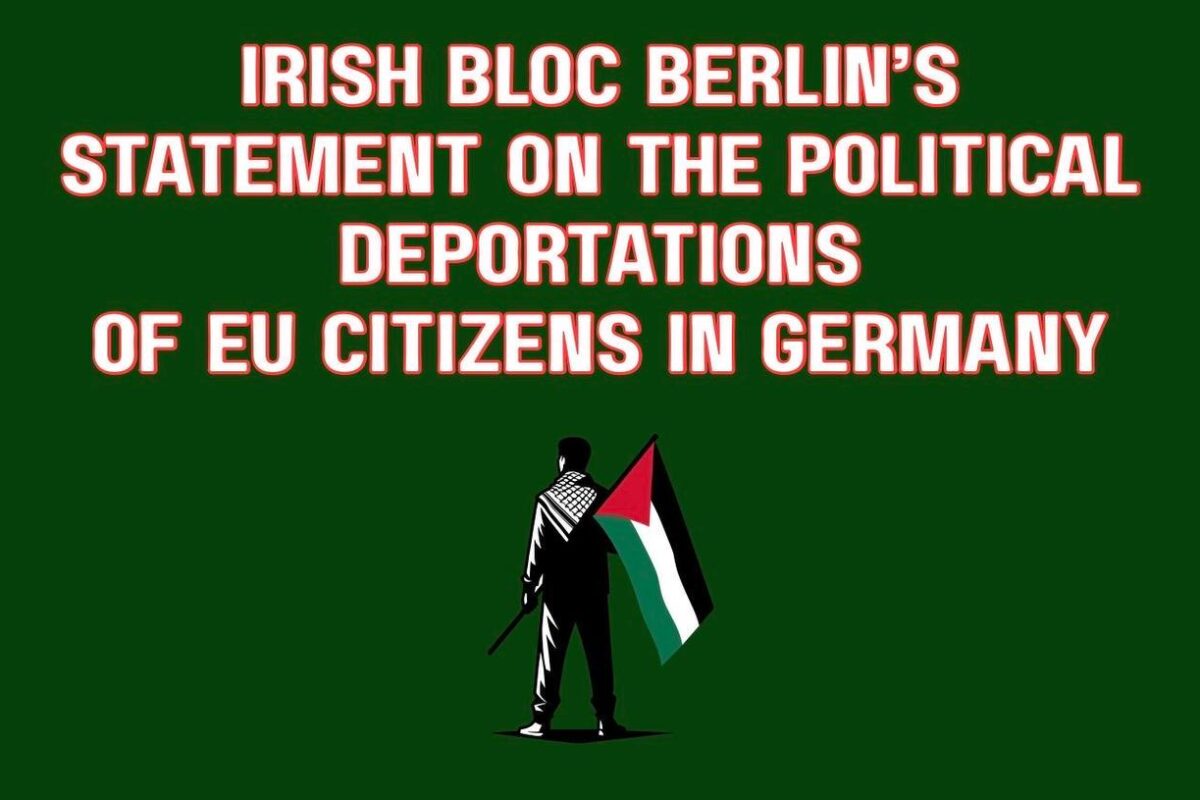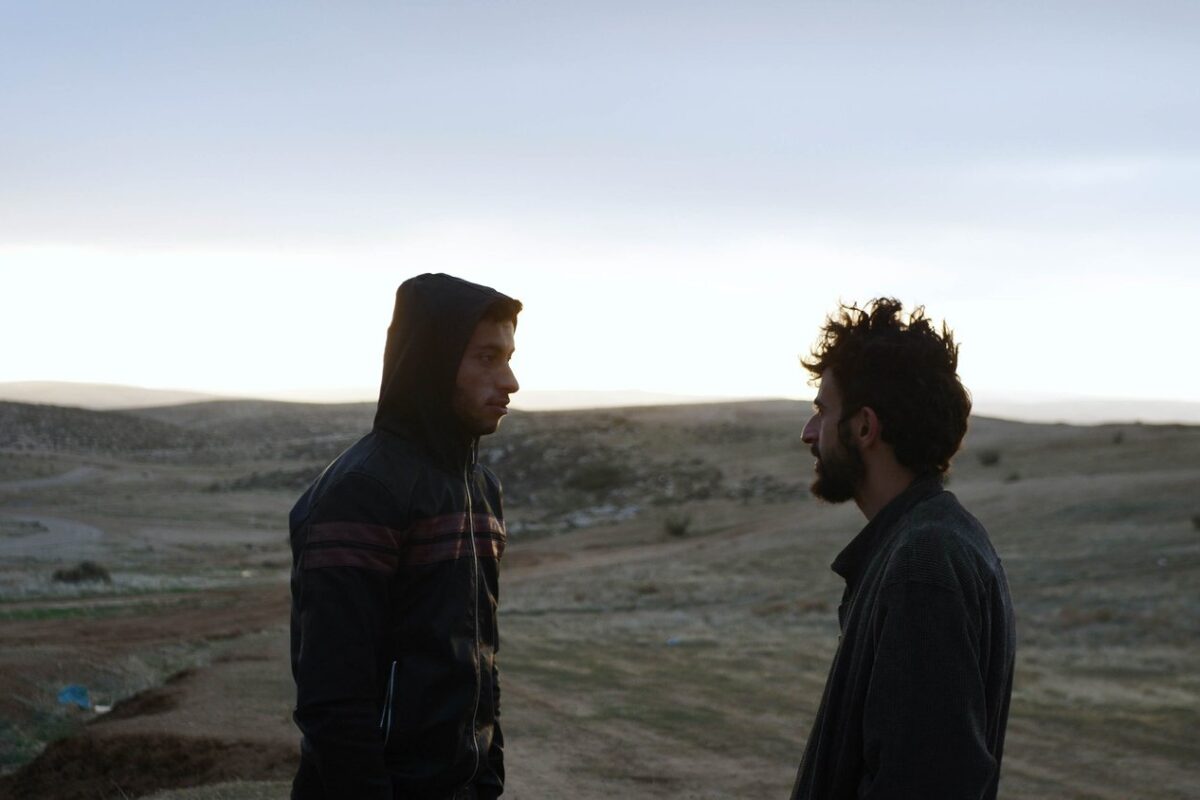The AfD’s support of Israel is hinged on hypocrisy. Despite their history of antisemitism and controversial foreign policy stances, on this topic, they seem to be in agreement with the coalition government. The reasons for this are multi-faceted, but ultimately boil down to their Islamophobic and anti-immigrant agenda; using the October 7th attack to further demonise Palestinian and Arab people, including those living in Germany.
Chancellor Olaf Scholz frequently reinforces his support of Israel, both through words and weaponry, and refers to the ‘Staatsräson’: the responsibility Germany has to protect the state of Israel after the Holocaust. Due to this concept, it may be considered too risky for any political parties to speak out about the genocide in Gaza, as there is a terrifying culture of censorship in contemporary German politics. Yet, the AfD’s support of Israel predates October 7th, for example, supporting Donald Trump’s decision to recognise Jerusalem as the capital. (This support is not mutual; Israel has cut all ties with the AfD.)
Following Hamas’ October 7th attacks, Alexander Gauland (speaking as the honorary AfD chairman) said “The attack was not only aimed at the Jewish state, it was also aimed at us. Israel is the West in an environment that rejects and fights the West. When we stand with Israel, we are also defending our way of life”. This idea of ‘defending a way of life’ is common anti-immigrant rhetoric, and one the AfD frequently utilises to criticise immigration policy in Germany.
The AfD also submitted proposals in October to end financial donations to the United Nations Agency for Palestinian Refugees. Following this, a press release from the Bundestag said “the SPD accused the AfD of using Hamas’ terror to fuel Islamophobia”, and also mentioned a representative of the Greens calling out the antisemitic comments made by AfD members, as well as contacts between party members and Iran (who support Hamas).
The AfD is notorious for intra-party division, with some members decidedly far-right, and others leaning to the more moderate, Eurosceptic right. Attitudes to Israel are no exception, with co-leader Tino Chrupalla condemning the October 7th attack, but calling for ‘de-escalation’, also saying ‘a viable solution for all sides must be the goal’. This Tweet was criticised by many within the AfD, particularly his use of the word ‘war dead’ for Israeli victims.
The AfD have a long track record of antisemitism and neo-Nazi affiliations, ranging from Björn Höcke’s use of a Nazi paramilitary slogan (‘Everything for Germany’), to Alice Weidel’s advisor Roland Hartwig attending a meeting in Potsdam with known neo-Nazi groups. Specifically in relation to memory culture, Höcke was critical of Berlin’s Holocaust Memorial, saying Germans are “the only people in the world to plant a monument of shame in the heart of its capital.” How can a party claim to care about Jewish citizens when they show such blatant disrespect toward those who were murdered during the Holocaust?
The AfD have caused huge controversy with their stances on the Russia-Ukraine conflict, saying Germany should stop sending weapons to support Ukraine, and maintaining close ties with Russia financially and politically. So, why are they toeing the line on this point, when it is clear they do not care about the safety of Jewish citizens, or about remembering the victims of the Holocaust? The answer is that it helps them further their (domestic) Innenpolitik agenda, utilising all possible avenues to justify their Islamophobic and anti-migrant stances.
A party that will so readily turn human lives into political pawns, atrocities into justification for bigotry, is a true danger to society, both in Germany and abroad. It is further proof that the AfD’s only real political convictions are fear-mongering and xenophobic hatred.




